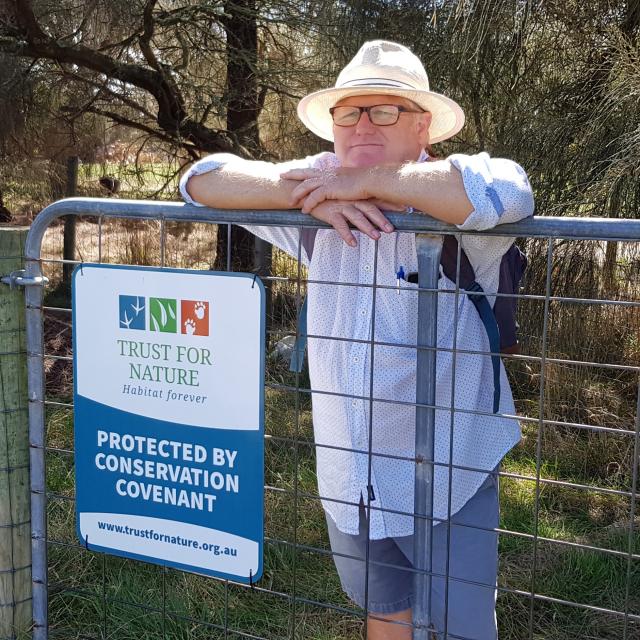
By Callum Ludwig
Trust for Nature is celebrating the start of 2024 and the arrival of land tax exemptions for properties protected by conservation covenants.
From the start of the year, landowners can apply for an exemption from the tax on land protected by a conservation covenant through Trust for Nature.
Nature Markets Manager at Trust for Nature Mat Hardy said they’re thrilled that the Victorian Government has made this change, which will encourage more landholders to protect their land for nature.
“We expect this will play a significant role in increasing uptake of covenants in certain parts of the state where landholders may benefit from the exemption, particularly in the areas around Melbourne,” he said.
“For instance, landholders with bush blocks who don’t live on the property and subject to land tax may no longer have to pay land tax if they protect their property with a covenant.”
A conservation covenant is a voluntary legal agreement between a landowner and Trust for Nature which help to protect land with natural, cultural or scientific values, through the Victorian Conservation Trust Act 1972.
The exemption will only apply to the area of land on a property that is protected by the covenant and non-protected land will retain its previous land tax liability.
Often the covenants are split into ‘tiers’, depending on if different parts of a property require different restrictions or management. For example, a regenerating forest tier requires more management for healthy growth than a mature forest tier.
Mr Hardy said Trust for Nature has protected over 114,000 hectares across Victoria, including over 780 hectares in the Yarra Ranges Shire on 43 conservation covenants.
“The Yarra Ranges play a vital role in keeping our environment healthy, through protecting water supplies and storing large amounts of carbon in Mountain Ash forests. Further, the Yarra Ranges are home to critically endangered species such as the Leadbeater’s Possums and Helmeted Honeyeaters,” he said.
“By protecting their land with covenants, landholders can play an incredible role in safeguarding these and other species and keeping Victoria’s environment healthy.”
Once landowners receive their 2024 land tax assessment, done between mid January to late June, they will then be eligible to apply for a conservation covenant exemption.
To apply, the landowners must provide the State Revenue Office (SRO) with their customer number, the address of the covenanted property, what the land is used for, eg: primary home, secondary home, primary production land (including all uses if there is multiple, a copy of the conservation covenant and the date of commencement of the covenant.
Mr Hardy said protecting your land with a conservation covenant is an incredible contribution to conservation.
“Because covenants are permanent, they continue protecting habitat even if the property is sold, so you’re really leaving a legacy for future generations. A covenant is also a responsibility, as landholders need to care for and manage the habitat on their land,” he said.
“Trust for Nature provides expert advice on managing conservation covenants to landholders.”
Applications for the exemption can be received online through My Land Tax (from April 2024 onwards), by contacting the SRO online or by writing to the SRO at:
State Revenue Office
GPO Box 1641
Melbourne, VIC, 3001
Mr Hardy said protecting private land with covenants creates privately protected areas that contribute to protection targets, and helps secure a world for future generations where nature is healthy.
“We need to rapidly expand the area of land protected for conservation to prevent further extinctions, fight climate change and meet global and Australian targets to protect 30 per cent of the world’s land area by 2030,” he said.
“Nearly two-thirds of Victoria is privately owned, and 90 per cent of the natural habitat remaining on private land is not in designated protected areas and thus at risk of loss.”
Landholders can express interest in a covenant at: trustfornature.org.au/what-we-do/submit-your-expression-of-interest






